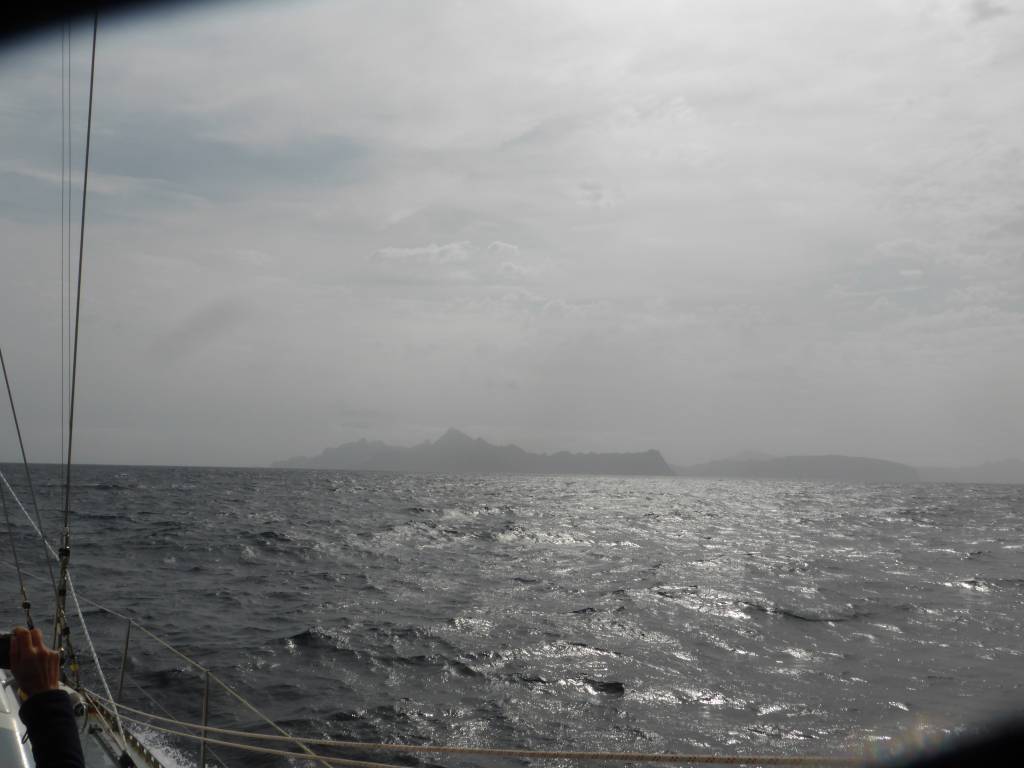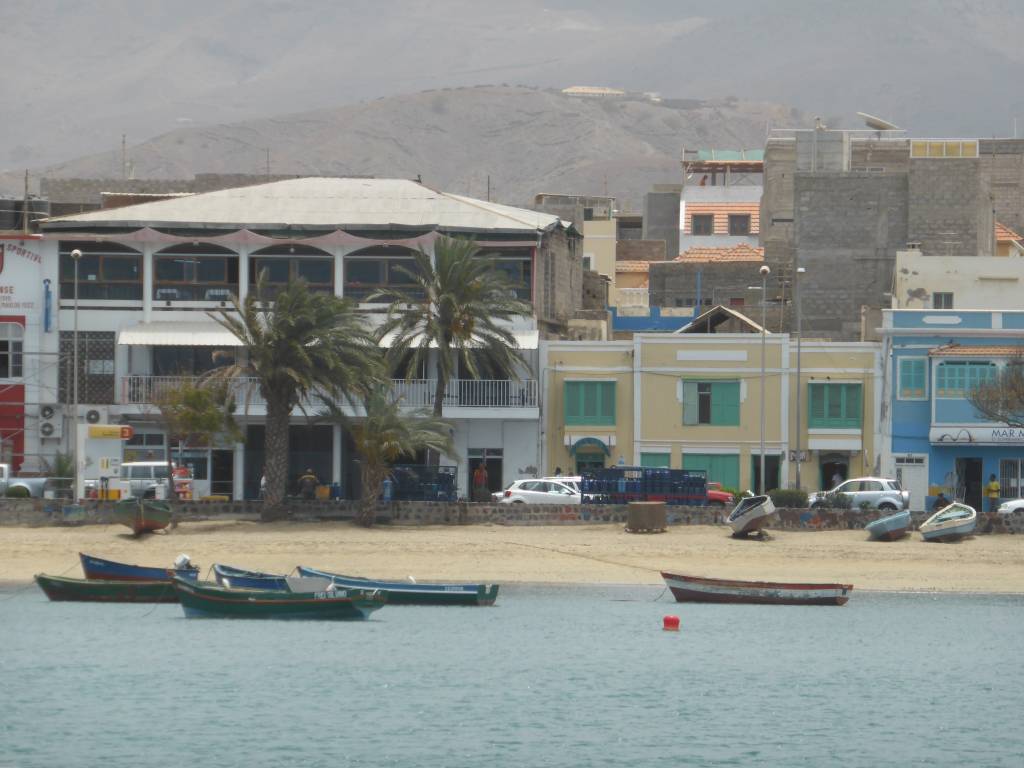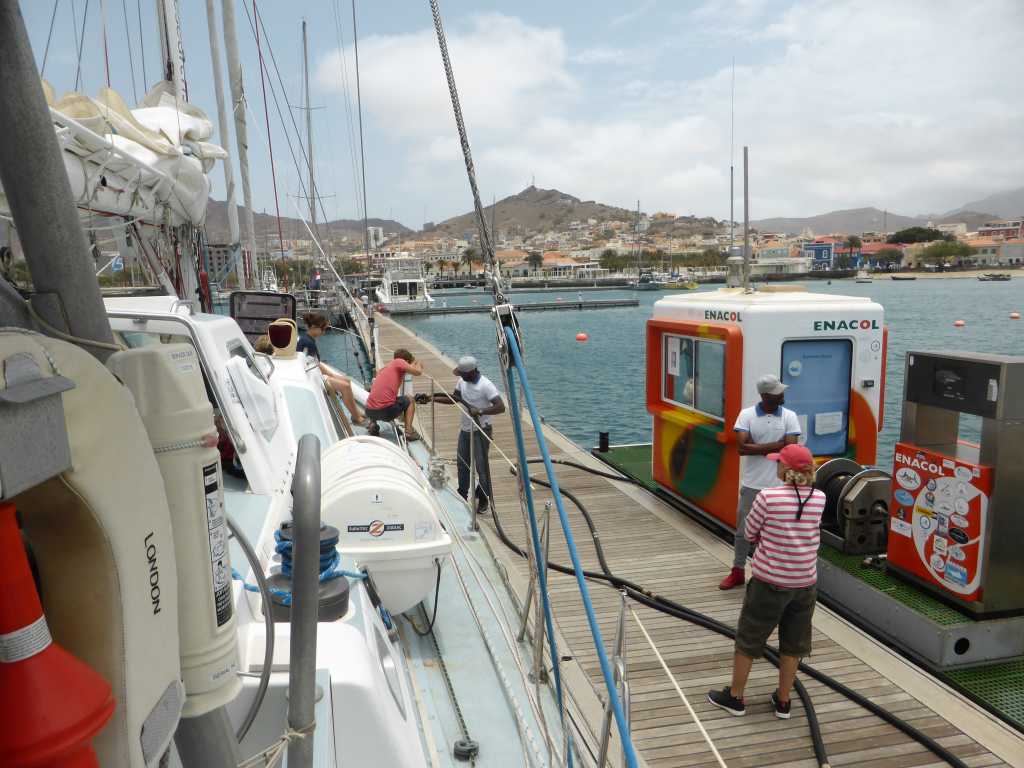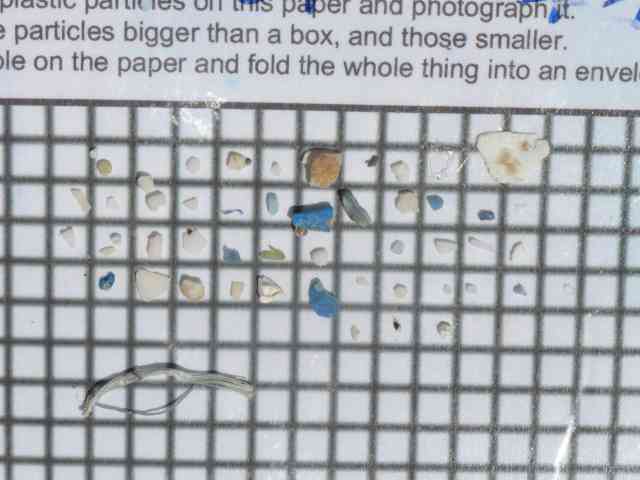Day 40 April 27
After many days at sea, we made landfall in the Cape Verde islands at Mindelo, the second largest town in the archipelago. We called here to get some more diesel, some more vegetables and to walk on terra firma for a short while.

The islands are brown, very barren and dusty. When we asked a local how much it rains he replied, ‘A couple of times’. It is a wonderful place. The people are very calm and chilled. It was not a long stay at this outpost of Africa, three hundred miles off the coast.

After a drink in the Marina bar we found a restaurant for dinner. Our waiter spoke excellent English having studied in Nottingham for two years before returning home.
We started well and the evening continued after a hilarious dinner into the building next door where the crew participated with the locals in capoeira dancing/ martial arts. Then on to a seven-piece band playing in a sort of art gallery. More exercise, this time a different kind of dancing.
All this happened in the space of a seventy five yard section of the street!
We slipped our moorings at 7am Saturday morning which gave us four and a half hours sleep. It didn’t feel enough at the time. I do not think we could have managed another night like that.

Anni Sharp, a Masters degree student in London, is undertaking her placement with MCR. She explains a bit about her research project here. My name is Annkathrin and I’m on board Song of the Whale for the research leg from Salvador to the Azores to study marine debris. I’m currently studying a Master’s in Conservation Science at Imperial College London, and am collaborating with Marine Conservation Research to write my thesis on the distribution of man-made debris in the Atlantic and the Mediterranean – two basins in which MCR has been gathering data on this topic for some time. Joining the team for this Atlantic research voyage is giving me the opportunity to collect additional data first-hand, and to gain practical experience of marine science along with a better understanding of the protocols used to survey plastic pollution at sea.
In addition to visual observations, in which the crew logs any floating debris seen from the boat during our marine mammal surveys, we also regularly deploy a manta trawl to sample the water for smaller particles of debris, including microplastics. The manta trawl is so named because it is a small metal frame with flat wings on either side for stability and a 50cm gaping mouth which skims along the surface of the ocean, resembling a ray sifting through the water. It has a long, tapering fine mesh net trailing behind it to capture up to the smallest particles of debris. It’s deployed once a day (sea state, speed and conditions permitting) for 30 minutes, towed behind the boat on the starboard side so as to avoid any interference with the hydrophone cable. It is then hauled in, and the narrow ‘sock’ at the very end of the net detached and filtered into a bucket of water to extract all the particles – both organic and inorganic – from the mesh. This bucket of water is then poured through a sieve, from which every fragment, pellet, and thread of man-made material is picked out with a pair of tweezers, counted and logged by size and category in a database, before each fragment is placed into a little sample bag. Then, the sieve and graph paper get a good wash, and the equipment is put away until the next day. It’s been quite sobering at times to see that, despite the fact we are hundreds of miles from land, things like bottle caps and synthetic laces have shown up in our samples. Even in the middle of the open ocean the extent of the plastic pollution problem is evident.

The trawl has been lent to MCR by an organisation called 5Gyres, a research NGO studying the problem of ocean plastics around the world in a collaborative initiative called the TrawlShare project. Groups like MCR are given the equipment to deploy, and then share the data with 5Gyres to help form a comprehensive picture of marine debris distribution around the world. MCR has been conducting research into marine debris distribution for a decade, and the data they have gathered will be extremely useful in adding to our understanding of the problem of ocean plastics and man-made debris.
As if the fantastic learning opportunity this project is giving me weren’t enough, I have had a life-long passion for marine life and getting the chance to see whales, dolphins and other oceanic wildlife out here in the Atlantic has been truly unforgettable. The raw beauty and power of the ocean really gives you a sense of perspective and makes you see life differently – plus, I’m learning a lot about sailing into the bargain! It’s so far been a fascinating voyage, full of spectacular encounters with the animals we’re seeking to protect with this research, and I’m looking forward to getting back to university to begin mapping out the data we have gathered.
Sorry, comments are closed for this post.